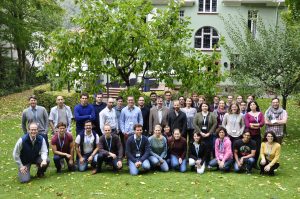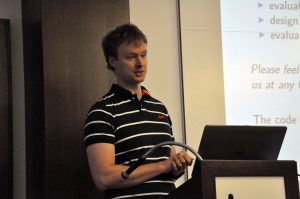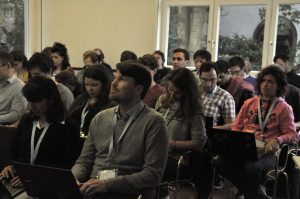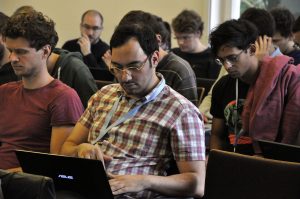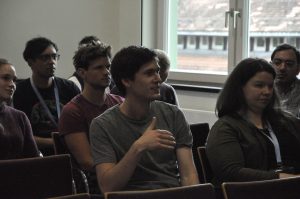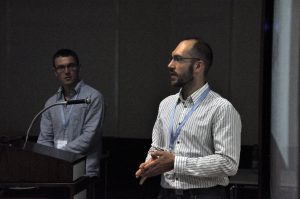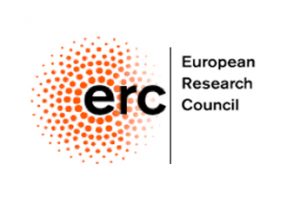The science of forecasting: Models and data instead of crystal balls
“Summer School” in Heidelberg in the framework of the “ScienceFore” Project, led by Tilmann Gneiting (HITS). The project is funded by ERC Advanced grant from the European Union.
“Que sera, sera”: The future being uncertain, forecasts ought to be probabilistic in nature, taking the form of probability distributions over future quantities or events. Accordingly, a transdisciplinary transition from point forecasts to probabilistic forecasts is well under way. The ScienceFore project led by HITS group leader Tilmann Gneiting (CST) seeks to provide guidance and leadership in this transition, by developing the theoretical foundations of the science of forecasting, as well as cutting-edge statistical methodology, along with applications in meteorology and economics. ScienceFore is supported by an Advanced ERC grant from the European Research Council (ERC).
From October 3-6, 2017, the CST Group organized the “ScienceFore Summer School” in the International Academic Forum Heidelberg, together with HITS alumnus Fabian Krüger (Heidelberg University).
About 40 participants from four continents discussed topics like forecast evaluation, forecasting across the disciplines or statistical postprocessing. Invited speakers were Tom Hamill and Michael Scheuerer from the U.S. National Oceanic and Atmospheric Administration (NOAA, Boulder / Colorado), Thordis Thorarinsdottir (Norwegian Computer Center) and Barbara Rossi (Pompeu Fabra University, Barcelona/Spain).
This project has received funding from the European Union’s Seventh Framework Programme for research, technological development and demonstration under grant agreement no 290976.
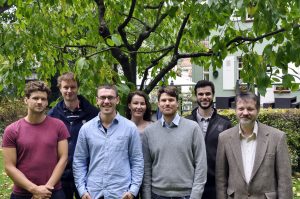
About HITS
HITS, the Heidelberg Institute for Theoretical Studies, was established in 2010 by physicist and SAP co-founder Klaus Tschira (1940-2015) and the Klaus Tschira Foundation as a private, non-profit research institute. HITS conducts basic research in the natural, mathematical, and computer sciences. Major research directions include complex simulations across scales, making sense of data, and enabling science via computational research. Application areas range from molecular biology to astrophysics. An essential characteristic of the Institute is interdisciplinarity, implemented in numerous cross-group and cross-disciplinary projects. The base funding of HITS is provided by the Klaus Tschira Foundation.
